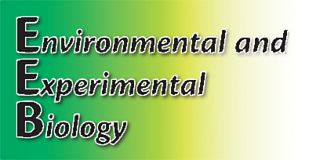
On-line: ISSN 2255–9582

| Faculty of Biology, University of Latvia | ||||||

|
Hard copy: ISSN 1691–8088
On-line: ISSN 2255–9582 Environ Exp Biol (2018) 16: 39–44
|
|||||

|
About the Journal | Retractions | Open Access | Author Guidlines | Current Issue | Archive |
|
Environmental and Experimental Biology |
Environ Exp Biol (2018) 16: 39–44 |
Maintaining honey bee drones in the laboratory is very important for some purposes, such as instrumental insemination of bee queens and studying effects of pesticides on drones. Few studies have been performed on the survival of mature bee drones in the laboratory. In this study, factors impacting the survival of mature bee drones were investigated. Small cages were used to facilitate observation of drones. The study showed that some factors can impact the survival of drones passively. These factors were sugar candy as feeding, collecting drones from colonies with egg laying workers, and caging drones without attendant bees. Outcome was improved when the attendant workers were nursing bees either from the same colony from which the drones were collected (preferable) or from another colony. Placing caged drones in complete darkness was better than under light. Avoiding these factors can help increasing the survival of caged drones under laboratory conditions. Likely this is the first study to examine factors that could impact the survival of bee drones in the laboratory.